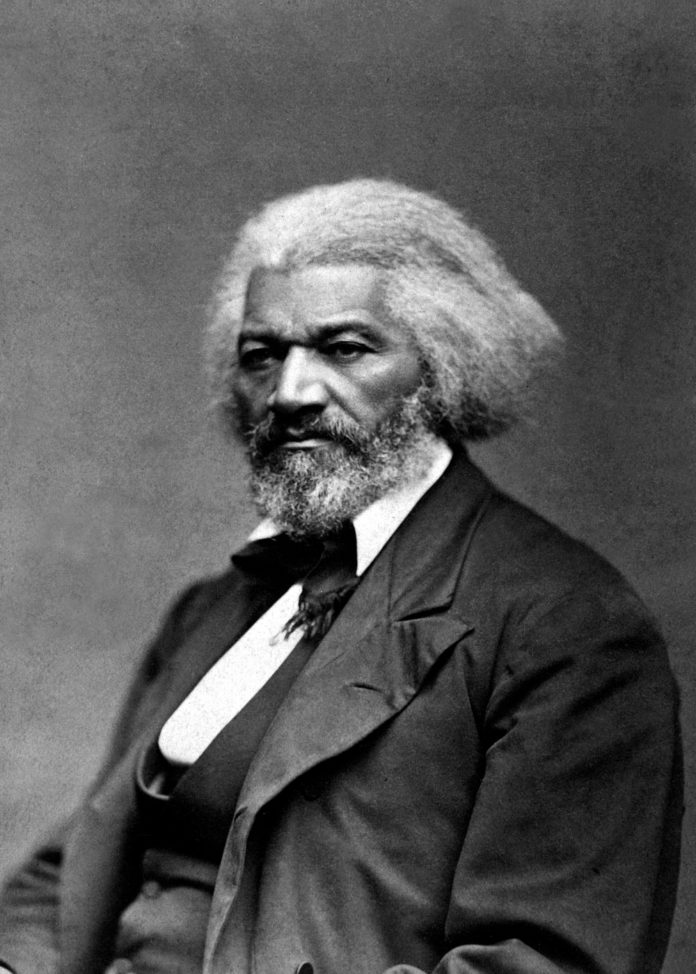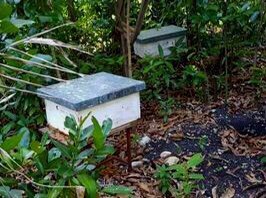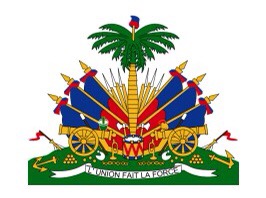hen Frederick Douglass was appointed by Republican President Benjamin Harrison as the next U.S. Minister Resident and Consul General to the Republic of Haiti in 1889, the well-known abolitionist, author and orator was 72 years old. Born Frederick Augustus Washington Bailey, Douglass, a former slave, had escaped to freedom in 1838, marking the beginning of a journey that still astounds to this day.
His appointment as Minister in 1889 was not a first for African Americans as Republican Presidential administrations had previously appointed African Americans to serve at Port-au-Prince, Haiti, as a reward for black political support.
Douglass was the fourth black American to hold the position, however, his appointment came at a time when Haiti was “more than a diplomatic prize in the political spoils system,” wrote Douglass’ biographer William McFeeley.
Essentially, while African Americans viewed Haiti as a symbol of the liberation and autonomy of black people, for the U.S., the island nation “remained of crucial strategic importance in the time of coal-fired, steam-powered warships,” according to a report by the National Archives History Office.
Thus, the Harrison administration believed that Douglass moving to Haiti was “an intelligent and a liberal move.” Douglass arrived in Haiti at a time the island nation had just emerged from a revolution in which the government of President François Deny Légitime, who had been considered a political pawn of the French in the Caribbean, was overthrown.
During the unrest, the U.S. supported Légitime’s opponent, a former military general known as Florvil Hyppolite, by supplying his insurgents with arms shipments and naval support. In return, the Harrison administration expected Hyppolite to give his full backing to the lease of Haitian territory at Môle St. Nicolas for a future American naval facility.
A report by Black Perspectives of the AAIHS said Haiti’s Môle St. Nicolas “was a desirable prize because of its location at the northern entrance to the Windward Passage, its ample harbors, and its defensible geographic features.” Helping Hyppolite come to power, the Harrison administration expected talks to begin on plans to give the Haitian port town to it.
Douglass’ mission in Haiti was to obtain approval of this plan from Hyppolite and his government. U.S. Navy Rear Admiral Bancroft Gherardi joined the abolitionist as co-negotiator but things didn’t go as Douglass expected when the Harrison administration attempted to use force to acquire the Môle.
Douglass, within two months of assuming office, got to know that American naval officers had begun “scouting the conditions at Môle” and news soon spread in Haiti and the U.S. that Hyppolite planned to cede part of Haitian territory to the U.S. as a reward for helping bring him to power.
Amid criticisms from Hyppolite’s political enemies, Black Perspectives reports that on New Year’s Day, 1891, Haiti’s foreign minister Anténor Firmin visited Douglass, where he condemned a U.S. newspaper for stating that Hyppolite had promised the Môle to the U.S.
Douglass thought the newspaper report was “baseless”, nevertheless, he stressed the U.S. government’s willingness to lease, rent, or purchase the Môle according to “proper means . . . consistent with the peace and welfare of Hayti.”
With that same stance, Douglass and Gherardi, in late January of 1891, met with Hyppolite and Firmin and convinced them to approve the lease pending the approval of the legislative body. Douglass, during the meeting, promised that “the concession asked for was in the line of good neighborhood and advanced civilization, and in every way consistent with the autonomy of Haiti.”
On February 2, a formal written application for the lease was submitted yet political opposition and the arrival of five more American warships ruined the likelihood of having an agreement, according to the report by the National Archives History Office. In April, Douglass alerted the State Department that Haiti has declined lease of the Môle, the report added.
Douglass, accepting that his mission did not yield the desired result, applied for leave but remained in Port-au-Prince for a while to help in protecting refugees fleeing violence arising out of Hyppolite’s military actions.
Douglass later returned to the U.S., resigning on July 31, 1891. White critics and U.S. newspapers soon blamed him for the failed negotiations for the Môle, claiming that Douglass was too sympathetic to Haitians. Douglass responded.
According to Black Perspectives, “first, Douglass pointed out, the United States had given Gherardi a role for which he had no preparation solely because he was white and Haitians were supposed to be more willing to defer to a white man. That assumption was laughable, Douglass suggested.
“It showed a stunning ignorance of Haitian history. Besides…even if a white diplomat could have exploited Haitians, a supposedly great country like the United States should ‘ask nothing of Haïti on grounds less just and reasonable than those upon which they would ask anything of France or England.’”




























![Phyllisia Ross – KONSA [Official Music Video]](https://haitiville.com/wp-content/uploads/2014/08/phyliisia.jpg)










